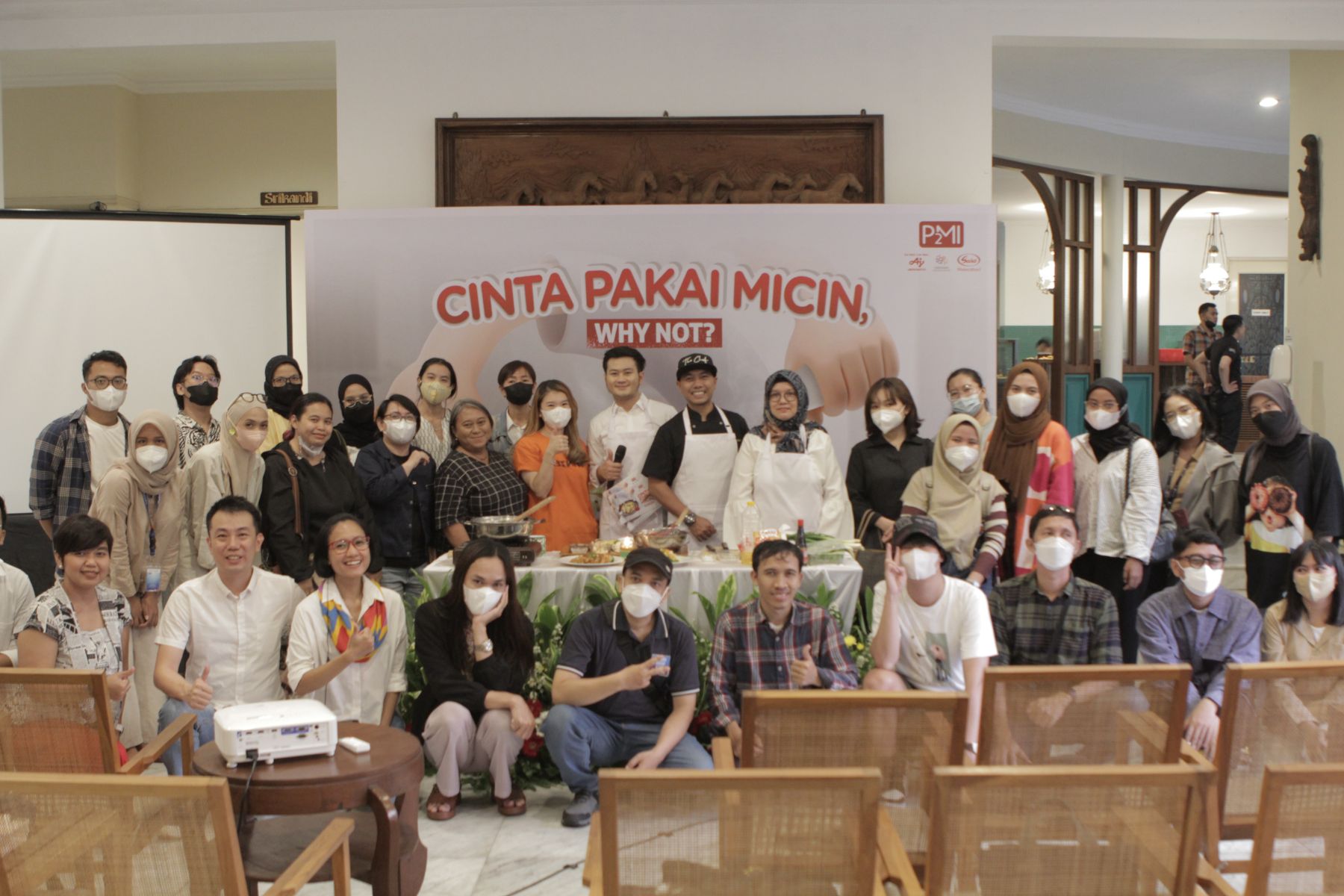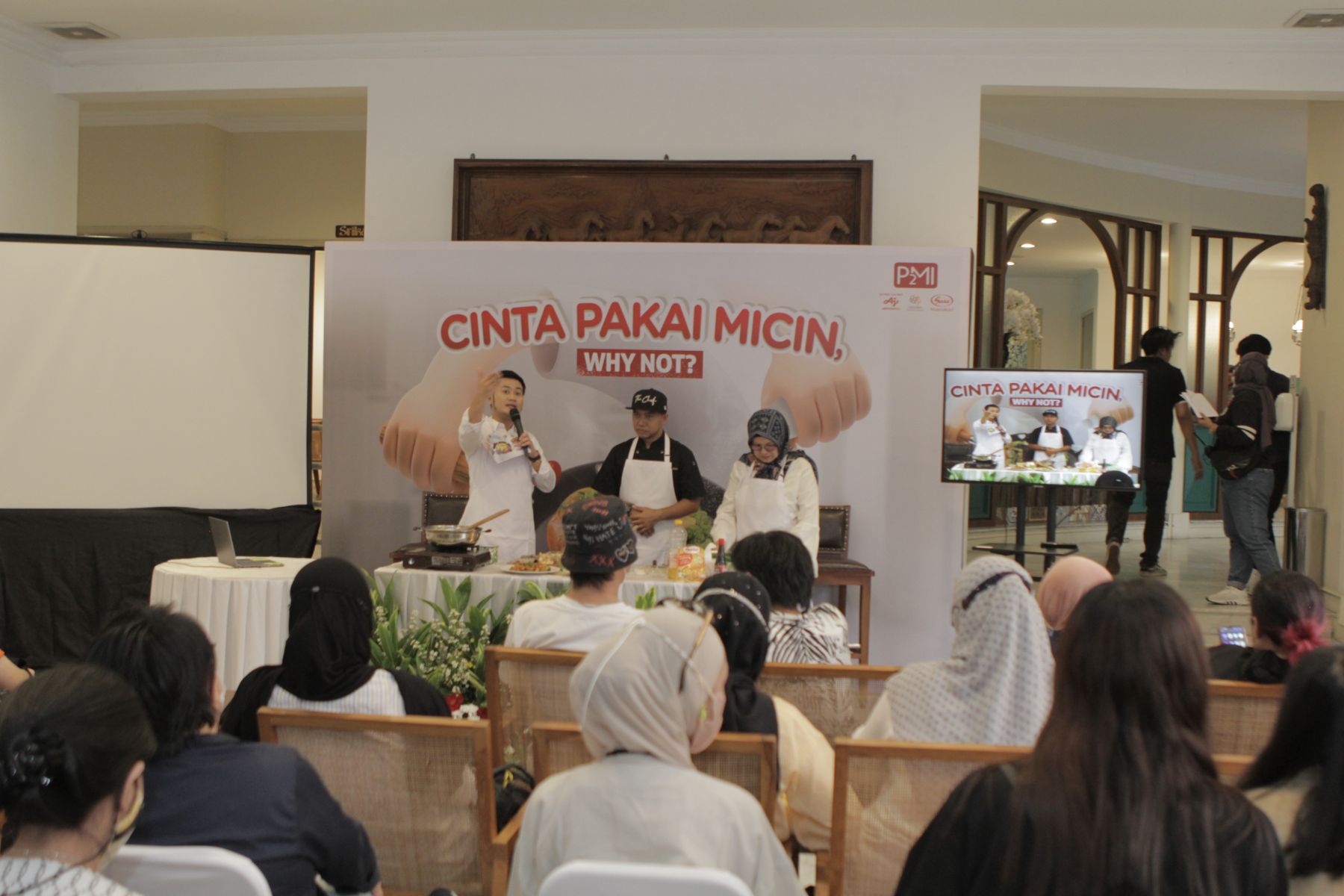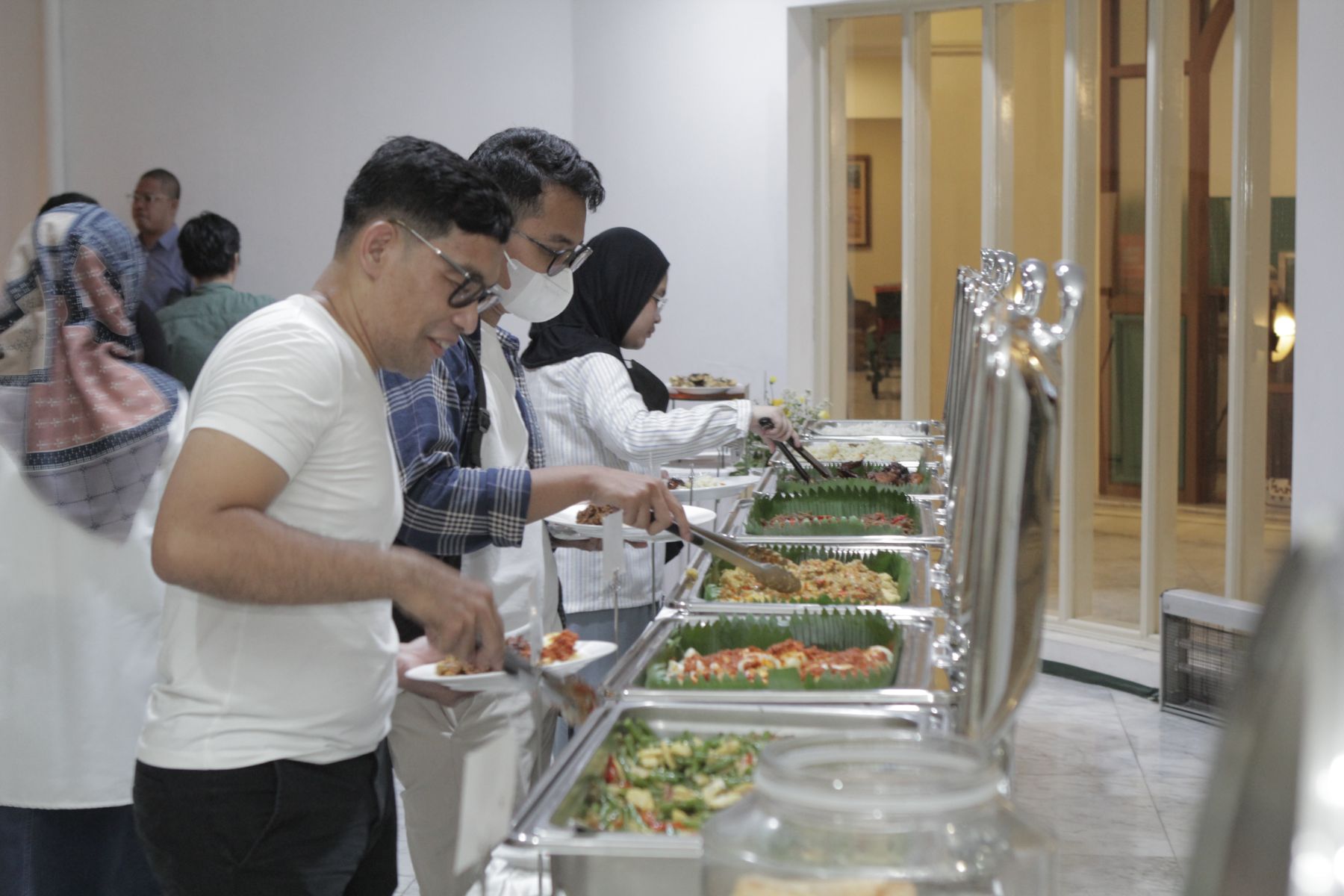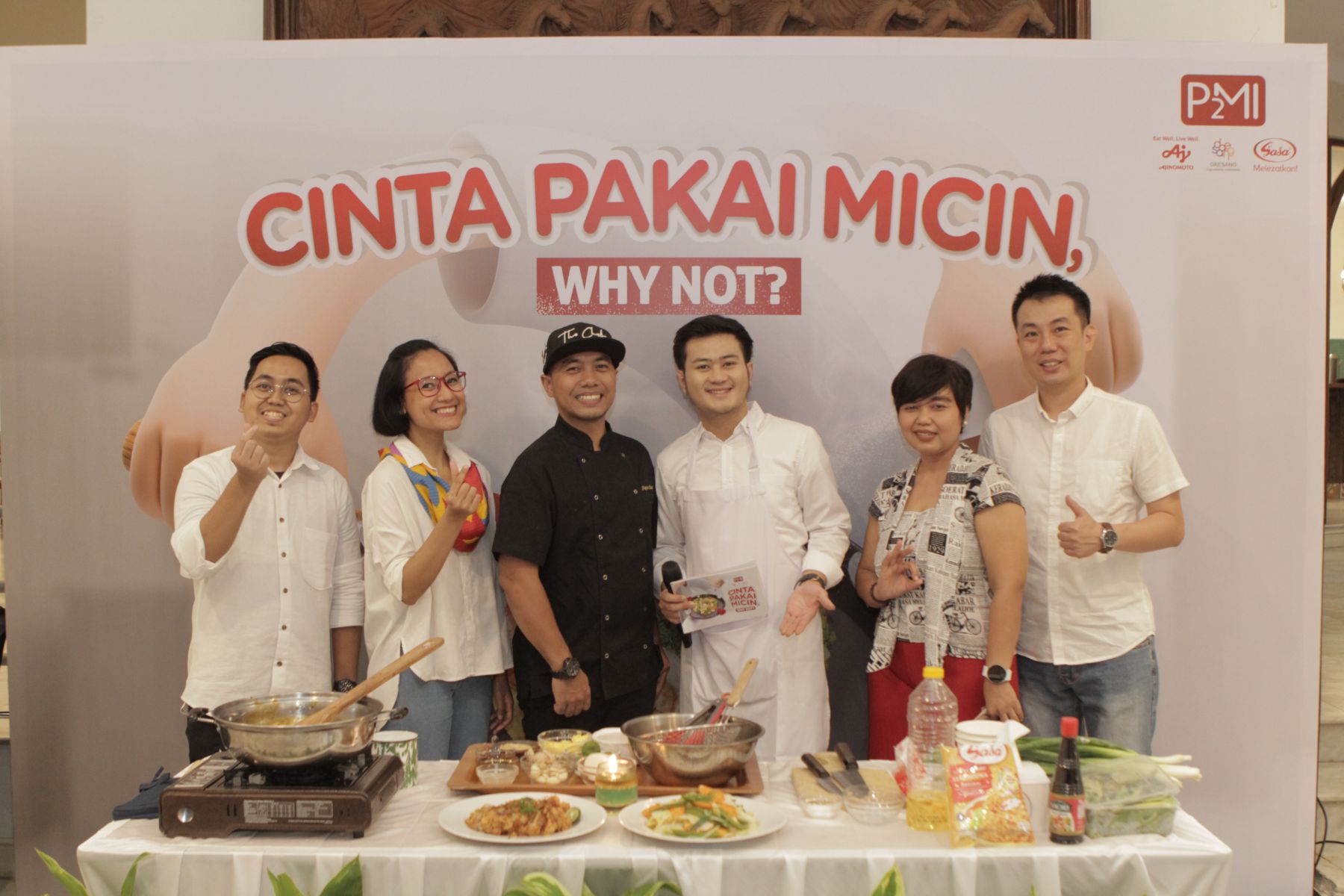Jakarta, April 17, 2023 - MSG (Monosodium Glutamate) or commonly known as "micin" in Indonesia, is a flavor enhancer made from sodium and glutamic acid. Everyone seems to know what micin is and has tasted the delicious flavor it brings to food. Glutamic acid in micin provides a unique savory taste compared to other food enhancers. Based on its history, MSG was first discovered in Japan in 1908 by a professor named Kikunae Ikeda. Kikunae Ikeda extracted and crystallized glutamate from seaweed broth to make MSG granules.

(Doc. P2MI)
Many claim that micin can cause various diseases such as obesity, cancer, and even stupidity. But is this true? To provide accurate information about MSG and to coincide with the month of Ramadan, P2MI held a media workshop called " Cinta Pakai Micin, Why Not?to invite some media colleagues.
"Many negative responses still circulate in society regarding this micin. Concerned about this matter, today we - P2MI, which consists of PT Ajinomoto Indonesia, PT Ajinex International, PT Sasa Inti, and PT Daesang Ingredients Indonesia - initiated providing accurate information about the safety of consuming MSG through a media workshop featuring Prof. Dr. Dede Robiatul Adawiyah, a lecturer in Food Technology at the Bogor Agricultural Institute, and enlivened with cooking demonstrations while fostering friendship," said Satria Gentur Pinandita - Chairman of the Communication Division of the Indonesian Monosodium Glutamate and Glutamic Acid Plant Association (P2MI).

MSG is safe for consumption at all ages. The safety level of MSG is explained in the regulation of the Ministry of Health and BPOM. BPOM Regulation Number 11 of 2019 concerning Food Additives explains that MSG is categorized as a food additive. It does not cause harmful effects on health with appropriate usage limitations. Even international institutions such as the Food and Drug Administration (FDA) and the World Health Organization (WHO) have verified the safety of MSG.
"MSG has a taste, namely Umami, which is the fifth basic taste, in addition to salty, sour, sweet, and bitter, because MSG has its own receptors on the surface of the tongue and is safe to consume. The hoax circulating in society about micin is untrue. MSG or MSG micin has a reference daily intake value (ADI) as not specified, which means MSG is safe. In fact, the sodium (Na) content in MSG is less than that of table salt. MSG contains 12% Na, while table salt contains 39%. This means that the Na content in MSG is lower than in table salt, so the risk of hypertension due to excessive sodium consumption is higher in table salt," said Prof. Dr. Dede Robiatul Adawiyah when met during the event.
"There are also some food products that "claim" to have no added MSG, and only contain mushrooms, yeast, and so on. However, scientifically, these food products also contain glutamic acid, which is also contained in MSG. In fact, these food products are sold at a higher price than MSG. Specifically, to explain this matter, we invited Prof. Dr. Dede Robiatul Adawiyah to provide a clearer explanation. Therefore, media colleagues can provide accurate and balanced information to the public so as not to be fooled," said Doddy S. Widodo - Chairman of P2MI.
The event, which was held warmly that day, was concluded with an iftar (breaking of fast) gathering between the media and P2MI officials. "Through this event, the negative stigma that has been attached to monosodium glutamate (MSG) is revealed to be untrue. In fact, MSG is a material that is also beneficial. P2MI hopes that through today's activities, the public will be informed about the safety of consuming MSG and will no longer be worried about adding MSG to their cooking," Satria concluded at the end of the conversation.

